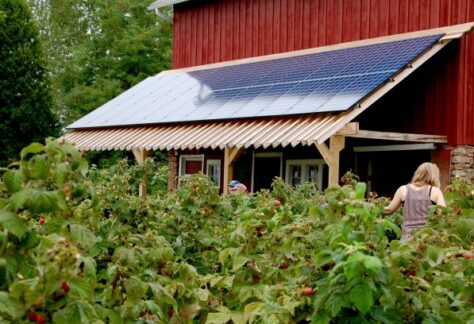Are Vacation Rentals a Good Investment Right Now?
There are many questions that face investors considering new investments in vacation rental properties. Is now a good time to buy? What does the state of the short-term rental market look like? What can I expect the closing process to look like given current social distancing protocols?
Real-Estate Values in Short-Term Rental Destinations
Many investors are looking for value opportunities in real estate given the economic contractions caused by the COVID-19 pandemic. However, real estate prices have maintained their pre-COVID growth trend as a result of limited inventory supply, pent up demand from buyers, and record low interest rates. Zillow shows year-over-year increases in all of the top 50 largest metro areas. We asked Joseph Carty, a real estate agent at Keller Williams Key West who specializes in vacation home investment properties about short-term rental real estate demand. “Since March 13th (when a national emergency was declared), there was an immediate spike in interested buyers, and this increase remains. Meanwhile, seller inventory is low, and so homeowners listing their properties are met with less listing competition and a high buyer demand, and therefore receiving top dollar.”
30-year interest rates are currently below 3%, an all-time low, which could present great opportunities for investors looking to hold properties long-term. However, if general economic conditions do not improve and/or interest rates increase, real estate prices could decrease, similar to the trend we saw after the subprime mortgage crisis, posing a risk to investors looking for short or medium-term investments.
Current Rental Market Conditions
While the impact on the travel industry due to the COVID-19 pandemic has been catastrophic, short-term rentals have seen steadily recovering since late March, when occupancy levels reached all-time lows. According to data prepared jointly by Smith Travel Research and AirDNA, short-term rentals have greatly outperformed hotels as customer preferences have shifted to larger, low-traffic accommodations particularly in leisure destinations with a beach or lake within 100 miles of urban markets.
Future Vacation Rental Market Conditions
However, it is unclear whether demand levels for short-term rental will continue at these levels. AirDNA shows current occupancy closely in line with 2019 levels but lagging significantly behind 2019 from the middle of August onward. With US COVID-19 cases continuing to rise in the popular vacation rental destinations of Florida, California, Texas, Georgia, and Arizona, we could expect to see a further negative impact on demand. There is also the risk of new government mandated travel restrictions that could be implemented or reinstated in some markets if the spread of the virus isn’t contained. With no definitive timeline for the widespread availability of a vaccination, any investment should consider the potential for the pandemic to continue beyond 2020. If widespread unemployment continues, demand for leisure travel will likely suffer in the medium-term.
Based on all of these factors, the International Air Transport Association (IATA) recently released their updated passenger forecast. That forecast suggested that global travel levels are unlikely to return to pre-COVID levels until 2024, with short-haul travel demand recovering by the end of 2023.
Consumer preferences in favor for vacation rentals will likely see the short-term market continue to outperform the rest of the lodging segment, especially in destinations within reasonable driving distance of major metropolitan markets, but not likely as strongly as they did over the summer months.
It’s also important to consider the additional costs operating during the COVID-19 pandemic, which could include additional cleaning protocols and equipment or mandatory waiting periods in between rentals.
For properties that are currently or recently operating as a short-term rental, it is common for prior rental income performance to be provided as part of the listing. Be sure to thoroughly review the income history and account for anomalies from COVID-19 in the estimation for future potential income performance.
Non-Financial Factors to Consider
For many potential short-term rental investors, there are more than just monetary motivations as part of the decision making process. Many homes serve dual roles as part-time vacation rental investment income property and part-time vacation homes. The travel restrictions due to COVID-19 has increased the desirability of having a vacation home option, as planned vacations to international destinations, cruises, or to locations where social distance isn’t possible are cancelled or postponed indefinitely.
Joseph Carty, Realtor, noted that the COVID-19 pandemic is strongly influencing the buyers to expedite the process of buying their dream vacation home.
He shares, “I’ve had three consecutive sales now since the start of the pandemic where buyers have said something along the lines of we’ve been thinking about this forever and now realize everything can change so suddenly. We could die tomorrow without ever having bought our dream home.”
Remote office and school environments have created an opportunity for many to either work or learn from outside their current primary residence. If you expect short-term rental demand for your home to be weak, you could consider spending extended periods of time at your vacation rental property when it’s not rented.
When evaluating the potential economic benefits in investing a vacation home, you should certainly consider the personal benefits that you will derive from the investment especially if they’d be replacing hard costs you would expect to spend over the course of ownership, like traditional vacations or renting someone else’s home.
Remote office and school environments have created an opportunity for many to either work or learn from outside their current primary residence. If you expect short-term rental demand for your home to be weak, you could consider spending extended periods of time at your vacation rental property when it’s not rented.
When evaluating the potential economic benefits in investing a vacation home, you should certainly consider the personal benefits that you will derive from the investment especially if they’d be replacing hard costs you would expect to spend over the course of ownership, like traditional vacations or renting someone else’s home.
Logistics of Buying During COVID-19
Throughout the country there have been significant changes in how properties are bought and sold during the pandemic. However, technology and creativity have allowed the real estate market to continue, being one of the bright spots of the economy. Social distance guidelines have seen traditional open houses replaced with live-stream open houses, typical showings have been replaced with virtual showings or remained in place by maintaining safe distance between buyers and their agents, mandatory disinfecting protocols in-between showings, home inspections being conducted by video calls. In many states, buyers and sellers are taking advantage of e-closing tools that eliminate the need for buyers and sellers to sit around a table with settlement agents.
Choosing the Right Real Estate Agent
Buying a vacation rental property is a major investment and for many buyers they are making a purchase in a market where they don’t reside or have experience doing business. An experienced real estate agent can be an invaluable partner that can help identify the best potential investment properties, navigate local regulations and market conditions, and manage evolving challenges of conducting real estate transactions in the COVID market. It’s important to consider a real estate agent’s experience working with short-term rentals when selecting a potential agent. Here are some questions you should pose to a potential rental property:
- How many vacation rental properties purchases and sales have you previously handled?
- How many active listings for properties that operate as short-term rentals?
- Where are the most successful short-term rentals located?
What are the most sought after features of vacation renters in that market? - What are the state or local restrictions on short-term rentals?
- Do you have local property management companies, housekeeping, or maintenance companies they can recommend?
Conclusion
Determining if now is the right time to purchase a new short-term rental property is a question only you can answer. While real estate prices have continued to hold strong during the pandemic, historic-low interest rates could present a great opportunity for many investors seeking a long-term return. While current demand for vacation rentals is quite strong, future demand is likely to suffer as the impact of the pandemic continues beyond initial expectations. When making the calculation for yourself, be sure to challenge your assumptions about potential rental income if the pandemic or economic conditions don’t recover as quickly as expected. With the high degree of uncertainty, it’d be prudent to prepare the potential for negative or limited cash flows from any investment property over the initial few years.
As the decision can be quite complex, it’s important to seek out additional resources from organizations like the Association of Short-Term Rental Homeowners (ASTRHO), your experienced real estate agent, a financial planner, tax advisor, and local short-term rental community groups.
Content Contributed By:

Larry Harte
Larry is an innovative finance leader specializing in the hospitality industry. Mostly recently, he was Senior Director, Finance at Kimpton Hotels & Restaurants where he oversaw the opening of new hotels & resorts across the United States, Canada, Mexico, and the Caribbean. Prior to that, while living and operating a short-term rental in Washington, DC, Larry participated in advocacy issues affecting the short-term rental industry.





